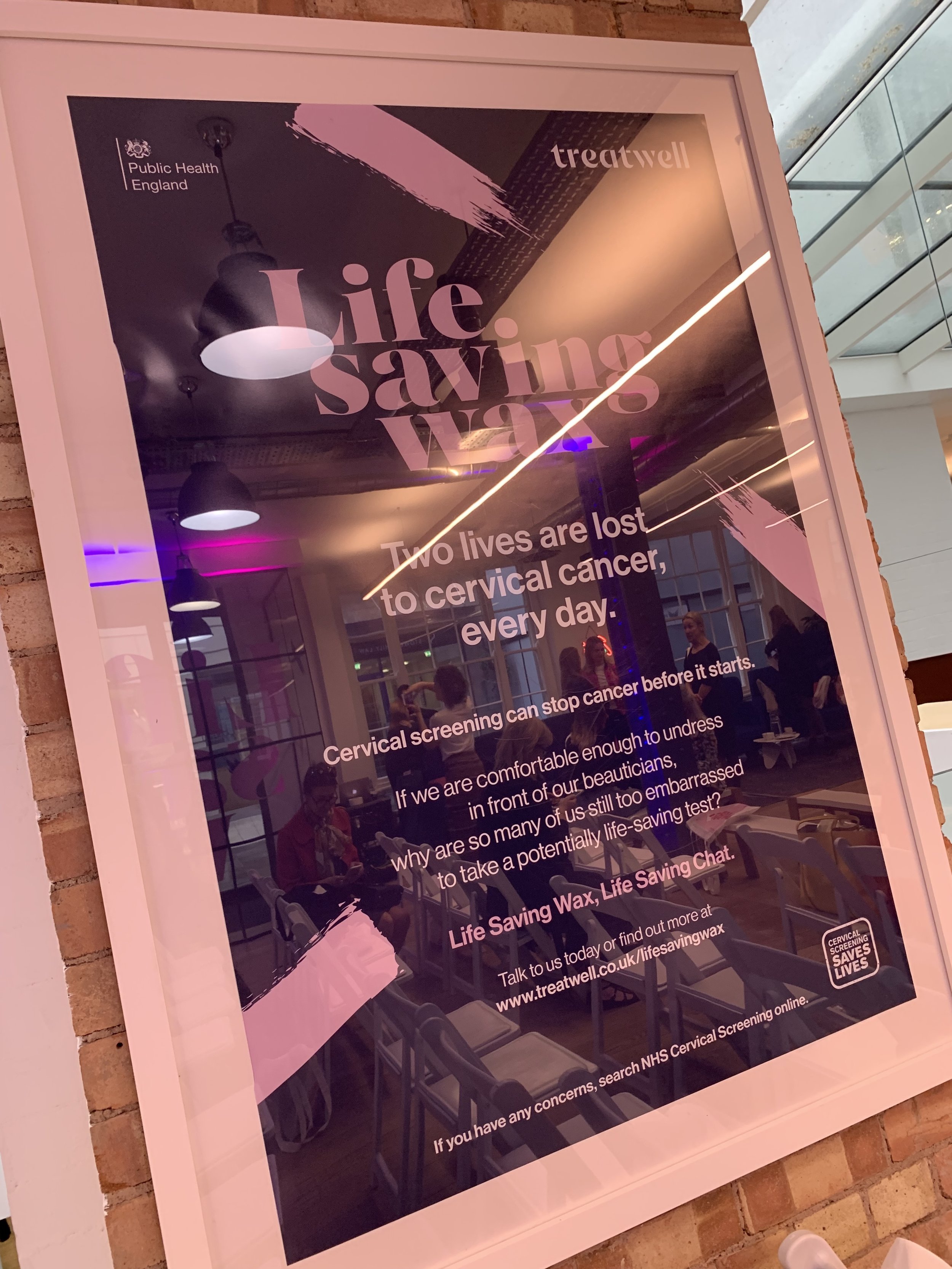#LIFESAVINGWAX: Treatwell & Public Health England Join Forces To Beat Cervical Cancer
Let me tell you a story. I started having cervical smears when I was 20. The starting age for screening was lower then and, for the subsequent 5 years I received abnormal results consistently. Eventually I had a biopsy and a colposcopy (during which I fainted for the one and only time in my life: there’s nothing quite like watching your cervix get ‘hole-punched’ to drain the blood from your brain) and thankfully, all was fine. Since then, my smear results have been normal but I make sure I go regularly.
It’s a story with a happy ending (thus far!) but for a myriad of reasons, so many women aren’t taking up their cervical screening appointments. When beauty treatment provider, Treatwell, learned that cervical screening figures were at a 20 year low, they were astonished. Even more confusing was that they were seeing huge increases in the number of intimate waxing appointments. How, they asked, can we be too embarrassed or busy or frightened to get a cervical smear test but totally ok with the much more intimate act of getting a Hollywood (currently, the second most popular Treatwell treatment) when it also takes longer and is more painful?
Inspired to make a change, Treatwell and Public Health England have joined forces to train and encourage beauty therapists and salons to start the conversation with clients. The #LIFESAVINGWAX campaign works on the basis that we seem to more comfortable having uncomfortable conversations with beauty therapists, they have recognised a potential platform that has remained previously unused. They have provided partnering salons with marketing assets - posters, flyers etc. - to raise awareness of the importance of regular cervical screening and trained therapists to start conversations, direct people to the right places and generally raise awareness.
Speaking on a panel at Treatwell HQ, hosted by Emma Gannon, Dr. Zoe Williams and Dr Christine Ekechi expressed the importance of having cervical smears whether you are sexually active or not or whether you have had the HPV vaccine or not. The message was clear - if you have a cervix, you must have regular cervical smear tests.
From L-R: Emma Gannon, Dr. Zoe Williams, Liz Hambleton, Hannah Witton
The panel also chatted about the reasons why many women avoid their cervical smear and the research showed that a lack of education was top of the list. Women in the age bracket the campaign is targeting (25-34) said that there’s little information about what a smear test is, why we have it and what it does. They also listed fear, lack of time and embarrassment as barriers.
Panel at Treatwell HQ was hosted by Emma Gannon and included Dr. Zoe Williams
Dr. Ekechi also pointed out that the take up for cervical screening amongst BAME women and members of the LGBTQ+ community was also substantially lower. “Many operate under the misconception that cervical screening is equated with sexual activity and assume that if you’re not having sex or if you’re not sexually active, then you don’t need to have a cervical smear, which is not true. Many also believe that most gynaecologists are male and this was a huge barrier to them when it came to accessing the screening.” Treatwell and Public Health England are vehement in their belief that the messaging has to be relevant to all women if cervical screening targets are to be met.
There’s a messaging issue as well when it comes to encouraging cervical screening amongst the LGBTQ+ community. Amongst the lesbian community especially, cervical screening take up is low due to the belief that HPV is associated largely with penetrative sexual activity. Dr. Ekechi explained that this isn’t the case. She explained that if you are sexually active at all, in any way, penetrative or not, you are going to come into contact with the HPV virus. It’s that prevalent. Members of the trans community too will require cervical screening if they have a cervix. The problem though, is the messaging. When asked, those in the LGBTQ+ community simply said that the messaging has never been aimed at them.
So what to do? Treatwell’s initiative, in collaboration with Public Health England, is smart and savvy but it’s still likely to only target a specific demographic. It’s still unlikely to reach large portions of women in low-income brackets and, perhaps, within the BAME community. Despite that, with cervical screenings being at a 20 year low, every initiative to raise awareness is crucial.
Posters and leaflets will be available in partnering salons to encourage women to consider cervical screening




